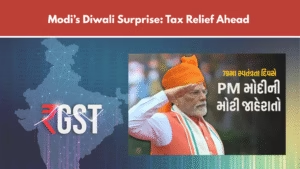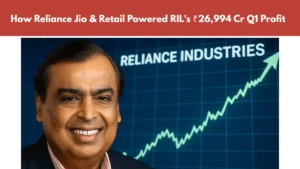Two-Wheeler Toll Tax in India 2025: New Rules, Controversies & Road Ahead

Two-Wheeler Toll Tax
Two-Wheeler Toll Tax : A Major Policy Shift in 2025
India, a country with over 25 crore two-wheelers, is on the edge of a significant transportation policy shift. The government is reportedly planning to bring two-wheelers under the ambit of toll tax, a decision that has sparked widespread debate, especially among daily commuters and low-income earners.
Traditionally, two-wheelers in India were exempt from toll tax on national and state highways. But as road infrastructure costs surge and funding requirements grow, the National Highways Authority of India (NHAI) is re-evaluating this policy under the banner of user-pays principle.
What Is Two-Wheeler Toll Tax?
A two-wheeler toll tax is a fee charged by road authorities from motorcycles and scooters for using highways, expressways, or specific bridges and tunnels maintained under the public-private partnership model or government-funded infrastructure.
While cars, trucks, and buses already pay tolls based on their vehicle class and load, two-wheelers have been kept toll-free due to their role in low-cost commuting and social equity.
Why the Government Is Considering Two-Wheeler Toll Tax Now?
There are multiple reasons being discussed:
1. Revenue Generation
India has built over 150,000 km of national highways, many of which are tolled. The government needs massive recurring funds for road maintenance and future expansion. By taxing two-wheelers, even at ₹5–₹20 per trip, the revenue potential is huge.
2. Road Equity
With increasing number of premium two-wheelers and high-speed bikes, the government argues that all users of infrastructure should contribute to its upkeep, not just cars or trucks.
3. PPP Agreements
Some private contractors under Build-Operate-Transfer (BOT) models are pushing for broader toll coverage, including two-wheelers, especially on expressways.

Proposed Toll Rates for Two-Wheelers in 2025
Although not officially implemented, reports suggest:
| Road Type | Proposed Toll Fee (One-Way) |
|---|---|
| National Highway | ₹10–₹15 |
| Expressway | ₹20–₹30 |
| State Highway | ₹5–₹10 |
| City Flyovers | ₹2–₹5 |
Two-Wheeler Toll Tax Note: These rates may vary by state and road length.
Regions Where Two-Wheeler Toll Already Exists
While most of India exempts two-wheelers from tolls, there are exceptions where riders already pay charges:
- Mumbai Entry Points (Mankhurd, Vashi, etc.)
- Bandra-Worli Sea Link (Motorcycles not allowed but still tolled for similar light vehicles)
- Some toll plazas in Tamil Nadu and Karnataka for bridge access
- Goa charges tolls for entry on major tourist routes for two-wheelers
Public Response: Protest, Concern, and Confusion
The moment the news about toll tax for two-wheelers hit the headlines, riders’ associations and political parties began to raise strong objections.
Major Concerns:
- Burden on the poor and middle class who use bikes for daily commuting
- Lack of dedicated two-wheeler lanes
- Safety risks due to congestion at toll booths
- Doubts about transparency of toll collection
Voices from the Streets
“We use bikes to save money on fuel and public transport. Now they want to charge toll too?”
– Rakesh Yadav, Factory Worker, Ghaziabad
“Will the roads improve once we pay? Or is this another tax for nothing?”
– Priya Nair, Pune College Student
“At least build a separate lane for us before charging toll!”
– Afzal Khan, Delivery Executive, Bengaluru
What the Government Says
The Ministry of Road Transport and Highways (MoRTH) has not officially notified any rule yet but is in consultation mode.
Key government points include:
- Charges will be nominal and distance-based
- E-tolling (FASTag) to avoid congestion for bikes
- Possibility of monthly passes for daily riders
- Exemptions for rural and agricultural users
However, the final decision is expected in Q4 of 2025, after stakeholder feedback.
FASTag for Two-Wheelers: A New Rollout?
Currently, FASTag is mandatory for four-wheelers only. But if tolls are imposed on bikes, FASTag-enabled digital tolling for two-wheelers could be introduced.
Benefits:
- No stopping at toll plazas
- Auto-debit with SMS notification
- Pass-based discounts
Legal Standpoint: Can Two-Wheelers Be Taxed for Toll?
According to the National Highways Fee Rules, 2008, two-wheelers are exempt from tolls. However, the government has the authority to amend rules as per Section 11 of the NH Act.
Courts in past cases like “Tamil Nadu Toll Dispute 2017” have upheld the government’s right to levy toll on any road user provided transparency and public benefit is ensured.
Impact on Delivery and Gig Economy Workers
Two-wheelers are the backbone of India’s delivery workforce – from Swiggy and Zomato riders to e-commerce deliveries.
If tolls are imposed:
- Per-delivery income may reduce due to daily toll charges
- Employer vs Employee responsibility for toll payment will arise
- Might increase delivery fees for consumers
Gig economy companies are lobbying for exemptions or subsidies under the new rules.
Environmental Impact Argument
Some urban planners are in favor of two-wheeler tolls on expressways, stating:
- It will reduce unnecessary vehicle movement
- Discourage over-dependence on personal vehicles
- Encourage public transport or EV bike transitions through incentives
However, environmental activists warn that without viable alternatives, it may backfire by pushing people back to older vehicles with higher emissions.
State-Wise Reactions
| State | Govt Stance |
|---|---|
| Maharashtra | Opposed strongly |
| Tamil Nadu | Yet to comment |
| Gujarat | Considering pilot tolls |
| Delhi NCR | Protest growing |
| Karnataka | Urban tolls likely |
| Uttar Pradesh | Reviewing feasibility |
Political Angle: A Poll-Time Debate
With several state elections approaching in 2025, political parties are using the two-wheeler toll tax as a hot campaign topic.
- Opposition slams the center for “anti-poor” policies
- Some BJP leaders call for “gradual implementation”
- Protests planned in Maharashtra, Kerala, and Delhi
Alternatives Suggested by Policy Experts
Instead of Direct Toll: Two-Wheeler Toll Tax
- Include small cess in fuel price
- One-time yearly road maintenance fee
- City-level congestion pricing for motorcycles
- EV toll exemptions to boost green mobility
Is This the Beginning of Universal Road Pricing in India?
Experts say two-wheeler toll is just the tip of the iceberg.
India is slowly moving toward a “pay-as-you-drive” model, where:
- You pay based on distance, time, and type of vehicle
- Dynamic toll pricing for peak hours
- Entire road network under electronic monitoring
Conclusion: Between Mobility and Money
The debate over two-wheeler toll tax in India 2025 is not just about a few rupees at toll plazas. It represents a larger question of mobility rights, infrastructure equity, and sustainable policy making.
As citizens, it’s important to demand transparency, fair pricing, and improved infrastructure in return for any such toll tax. Until then, the public remains divided — between those who see it as a burden and those who see it as a necessity for development.

Frequently Asked Questions Two-Wheeler Toll Tax (FAQs)
Q1. Are two-wheelers currently paying toll tax in India?
A. No, two-wheelers are mostly exempt from tolls, except in specific locations like Mumbai and some parts of South India.
Q2. When will the new two-wheeler toll tax be implemented?
A. The official date is not declared, but it may be introduced in late 2025 after stakeholder consultations.
Q3. Will FASTag become mandatory for bikes?
A. If tolls are introduced, a special FASTag for two-wheelers might be rolled out.
Q4. What is the proposed toll amount for bikes?
A. Estimated between ₹5 and ₹30 per trip, depending on the type of road and state policy.
Q5. Who is exempt from the toll?
A. Possible exemptions may include rural, agricultural, and emergency service users.




